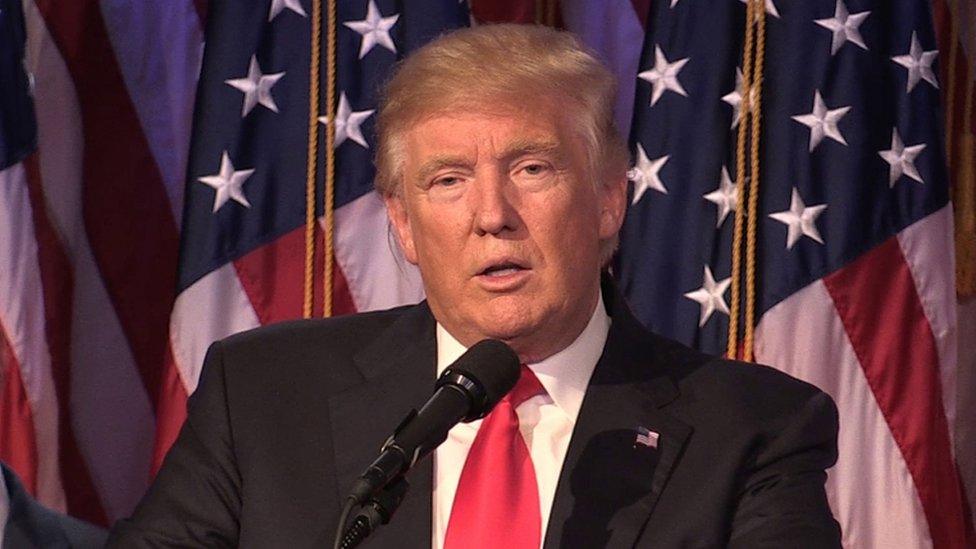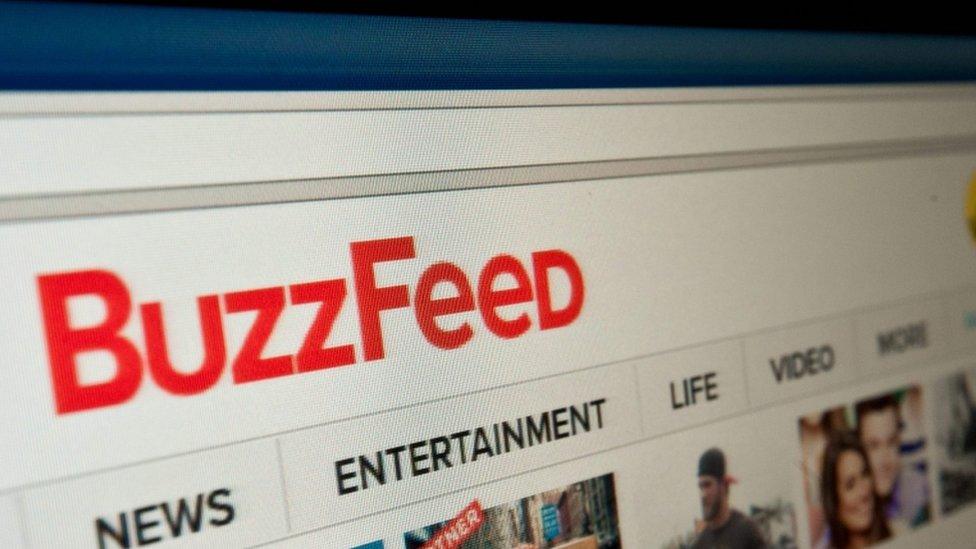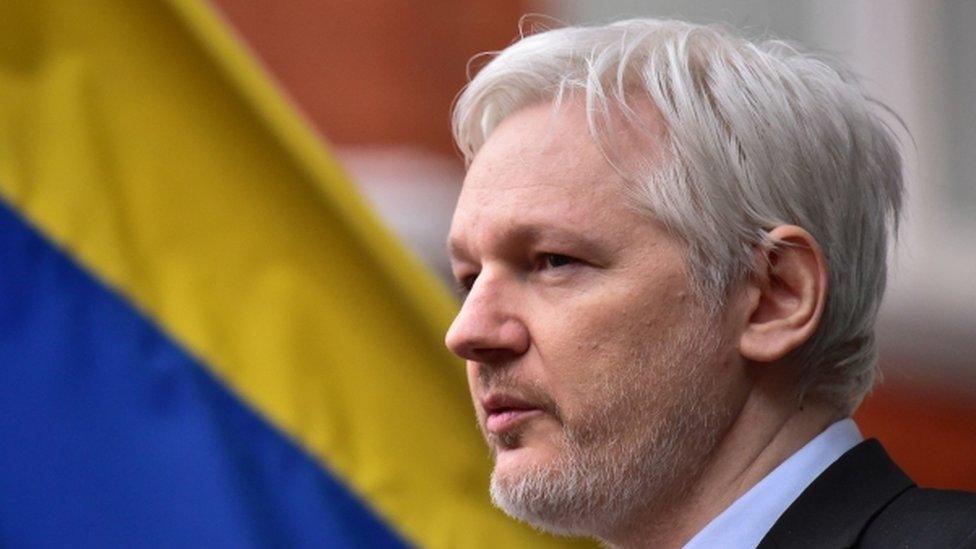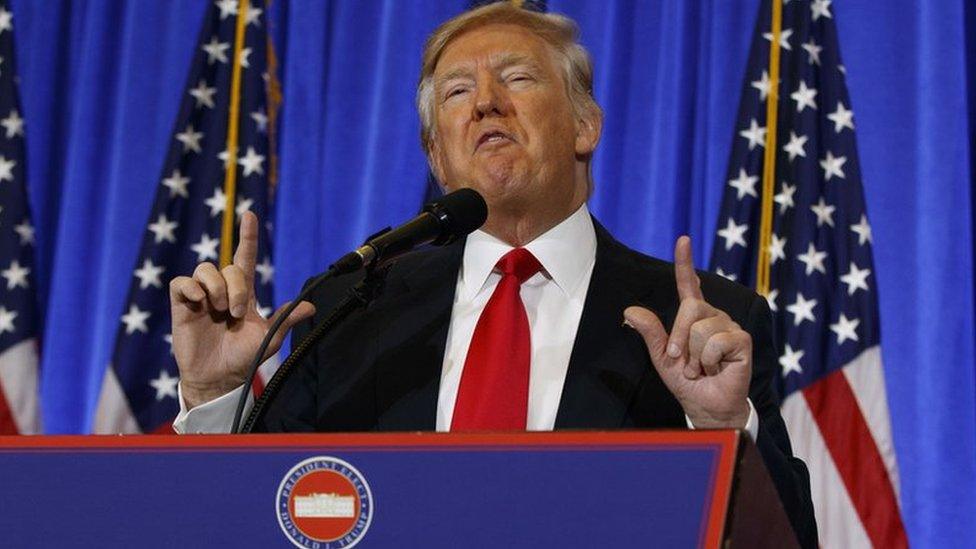Was Buzzfeed right on Donald Trump dossier?
- Published

Donald Trump has criticised the decision to publish the dossier
Was Buzzfeed right to publish the Trump dossier?, external
That comes down to editorial judgement, which is to news what eggs are to an omelette - the essential ingredient.
That said, I opened this post with a question which I will not answer - partly because I work for the BBC and it is not my place to pass judgement on other news organisations' editorial calls and partly because those editorial calls are subjective.
But as BBC media editor, and as a former editor of The Independent who had to make thousands of these calls, often against tight deadlines and under great pressure from the subjects of our stories, I want to explore some of the considerations that we editors have to make.
Hopefully that will illuminate the hugely controversial decision made this week by Buzzfeed.
Editorial judgement is ultimately a moral activity. It is an exercise in selection - which stories, facts, claims, pictures, words, ideas to publish, and which to leave out - that relies on several smaller judgements.
These include: the importance you attach to veracity; your own political persuasion; a sense of your audience's interest and - outside the BBC and unfortunately more common now the news business model is under such strain - a consideration of the commercial implications of publishing particular things.
The rectitude of all moral activity or actions - editorial judgement included - can be analysed along three criteria:
The intentions that motivate an action
The consequences that follow
The consistency of the action with certain abiding principles.
Let's look at Buzzfeed's decision to publish the dossier in terms of intentions and consequences.
Some people will argue that - whether you agree with it or not - there is a coherent case for putting information in the public domain even if you are not 100% certain it is true.
Ben Smith, the editor-in-chief, has spoken eloquently, external about how, in our digital era, publishers are no longer gatekeepers of information who demand to be trusted, arguing that Buzzfeed is simply a distributor.
News value
His second argument is that because this publication was being circulated widely among government officials, it had tremendous news value and therefore it was in the public interest to put it in the public domain with plenty of caveats so readers could make up their own minds.

Buzzfeed does not share Mr Trump's political view
I know from personal experience that, if you are a digital publisher whose content is free, you mainly make money from advertising, which is related to traffic and which you are under immense pressure to generate.
This ultimately commercial imperative can - and does - influence the editorial judgement of many publishers.
But let us be charitable to Buzzfeed and say that commercial considerations did not influence this editorial decision.
Buzzfeed has a young audience and often publishes journalism associated with the political Left, unlike Trump whose most stable constituency is older voters on the Right.
It is reasonable to conclude that one reason Buzzfeed published this dossier about Mr Trump is that it calculated it could harm someone it does not like.
So Buzzfeed, having put traffic considerations aside, and being antithetical to some of the things Mr Trump stands for, calculated that the document, which had potentially huge implications for the incoming president, deserved to be seen in its entirety by readers who want access to information.
International fallout
That covers the intentions, but what of the consequences?
Huge traffic for this article must have been one consequence. Another is that Buzzfeed, as a powerful international brand, is now clearly associated with a willingness to publish information it knows could be false.
Another consequence is of course that the information contained in the dossier, some of it untrue, much of it not corroborated, is now in the public domain we call cyberspace. Perhaps citizens across the globe are digesting it to better understand the incoming president.
Finally, life has been made harder for other news organisations, such as CNN, who Trump targeted in his remarkable press conference.
They have now been conflated with Buzzfeed under Trump's pernicious umbrella term "fake news".
Buzzfeed could reasonably say it is not its job to secure access to Mr Trump for CNN - and in any case the president-elect was not exactly friendly with the mainstream media before the dossier's publication.
It will be for editors and citizens everywhere to decide, in balancing Buzzfeed's intentions with the (largely foreseeable) consequences, whether it made a correct editorial judgement.
That in turn depends on your moral position - your commitment to truth and so on.
Different approaches
What really interests me is that Mr Smith is saying that the digital revolution has redefined journalism, creating publishers who are prepared to put lots of information into the public domain without verifying it.

Julian Assange's Wikileaks has put huge amounts of information into the public domain
There is a difference, however, between Wikileaks, who do that sort of thing, and what most journalists understand their role to be: corroborating information before making selections as to what should be published.
In a sense, Mr Smith's position is an argument against journalism, in that being gatekeepers who curate and edit the world is precisely what many hacks believe their role to be.
Just as traditional media included many different types of publisher - tabloids v broadsheets, for example - so new, digital media include those who exhaustively check their facts and proceed with caution and those who are prepared to publish unverified allegations because they think the public should know.
The BBC is in the former camp, as my colleague Paul Wood argued in his excellent blog.
We work very hard to verify claims before publishing them: so much so that there are always big stories we know about that we cannot use, because we haven't got sufficiently solid sourcing. Our political editor Laura Kuenssberg has talked about this, external - and I can certainly relate to it.
Together with Mr Trump, this controversy helps to illuminate how fast the media is changing - and how it affects all our lives.
- Published12 January 2017
